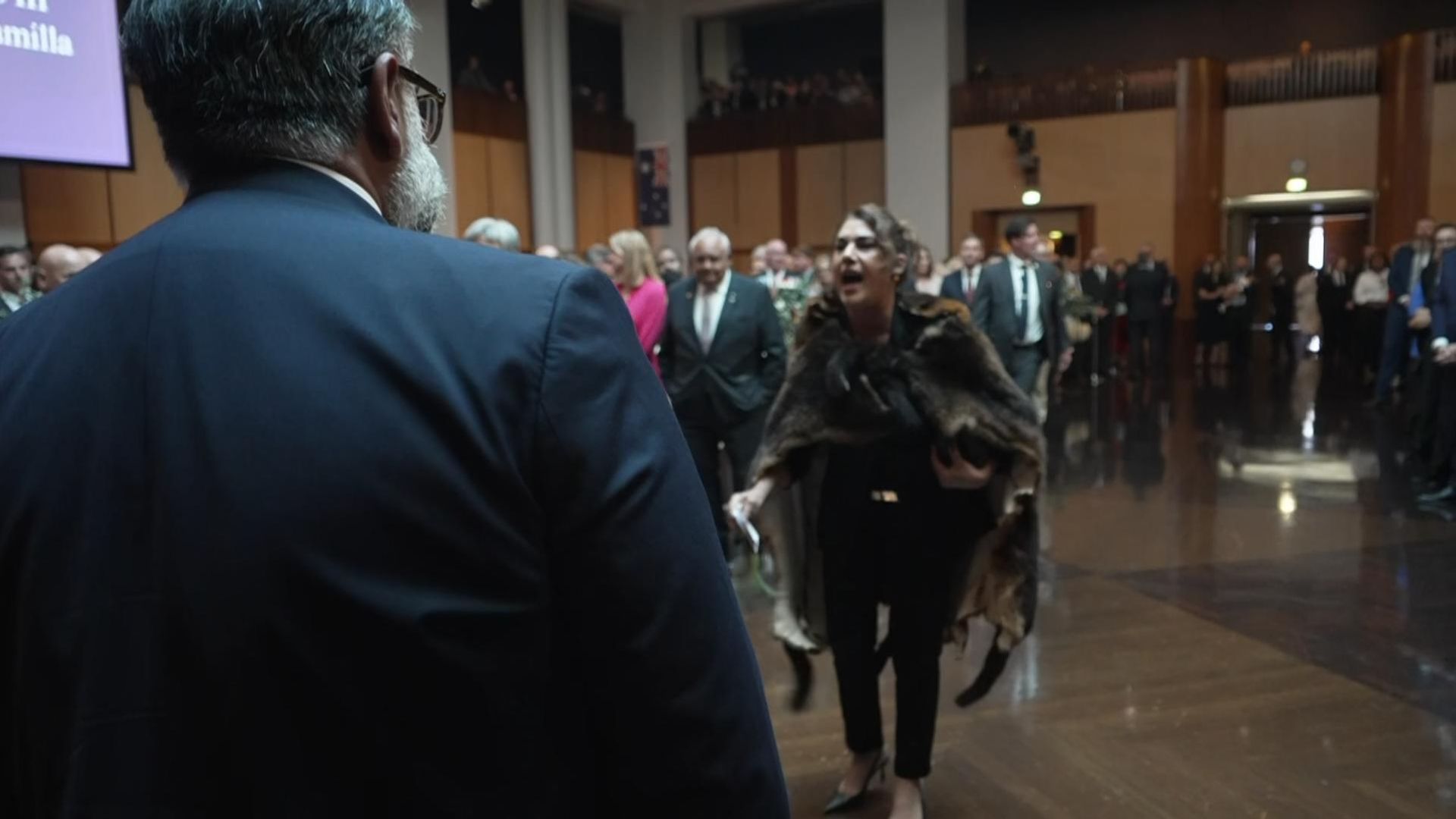A senator has tried to confront the King in Australia’s parliament, shouting: “This is not your land. You are not my King”.
Lidia Thorpe, wearing traditional clothing, strode up the aisle yelling that she did not accept his sovereignty.
Security stopped her getting close and led her out the chamber as the King turned to talk with Prime Minister Anthony Albanese.
Ms Thorpe is the first Aboriginal woman from the state of Victoria to become a senator.
When she was sworn into parliament she refused to take an oath of allegiance to the late Queen.
The senator was one of about 20 people protesting as the royals laid a wreath at the war memorial in Canberra earlier in the day.
Her attempt to confront the King came after he spoke to prominent politicians and dignitaries at Parliament House in Canberra.
Sydney beaches reopen as composition of ‘mystery’ balls revealed
Queen Camilla makes young royal fan’s dream come true on arrival in Australia
Mystery tar balls wash up on Sydney beaches forcing seven to close
An indigenous leader who earlier welcomed the royals to Australia’s capital on Monday also called on him to apologise for colonial wrongs.
Aunty Serena Williams from the Ngunnawal people, performed a “Welcome to Country” and smoking ceremony.
She said: “We all have roles and responsibilities, and I have roles and responsibilities to my people. And I think an apology would be beautiful.”
When asked if that meant the King himself should say sorry, she replied, “Yes. Because we have to acknowledge our past.”
During his address in parliament, the King referenced the ceremony by Aunty Serena as he landed in Canberra.
He said he “deeply” appreciated the gesture, which he said offered the chance to, “to pay my respects to the traditional owners of the land on which we meet”.
Be the first to get Breaking News
Install the Sky News app for free
“In my many visits to Australia I witnessed the courage and hope that have guided the nation’s long and sometimes difficult journey towards reconciliation,” the King said.
But he stopped short of the apology indigenous leaders had hoped to hear.




